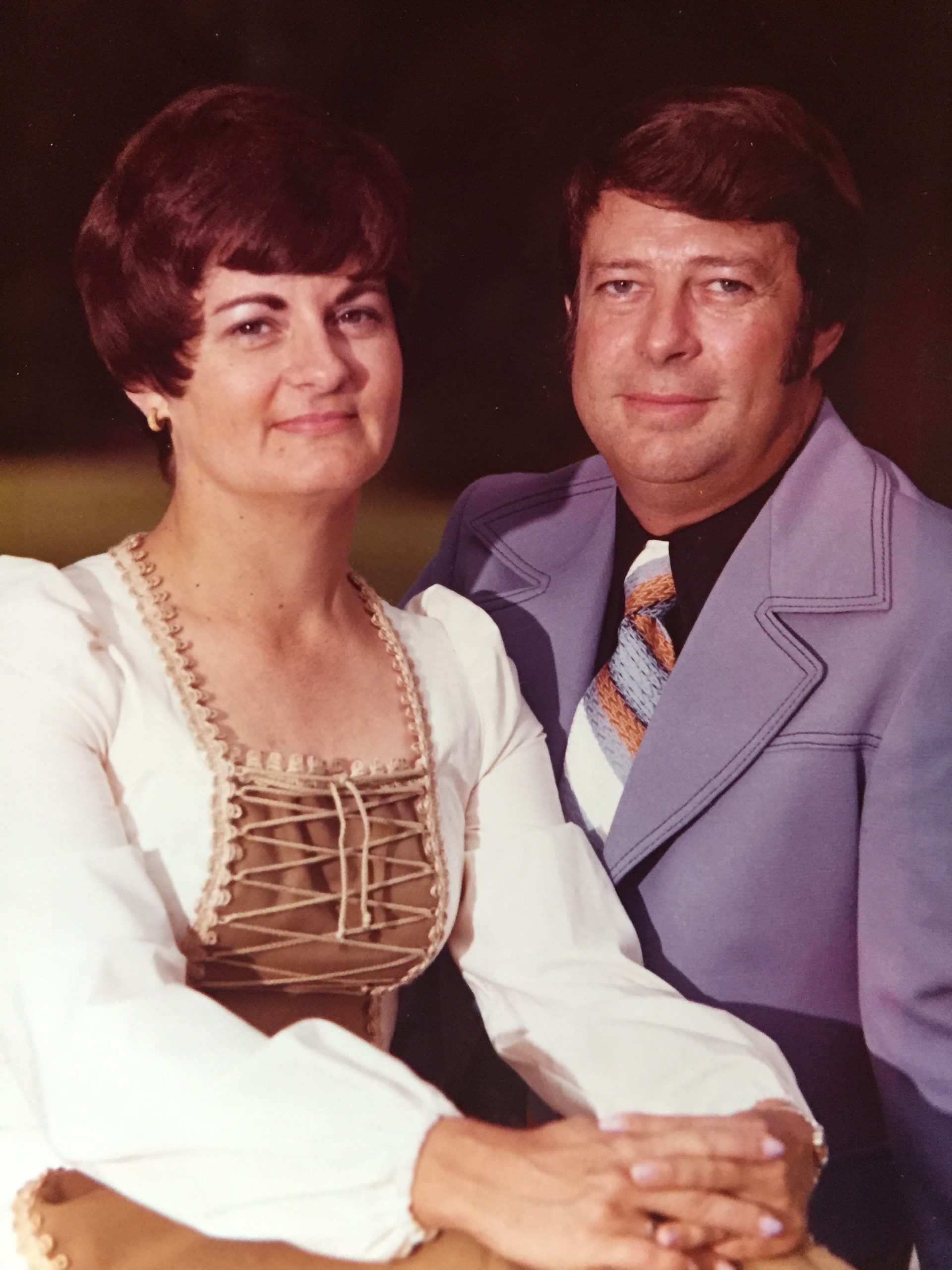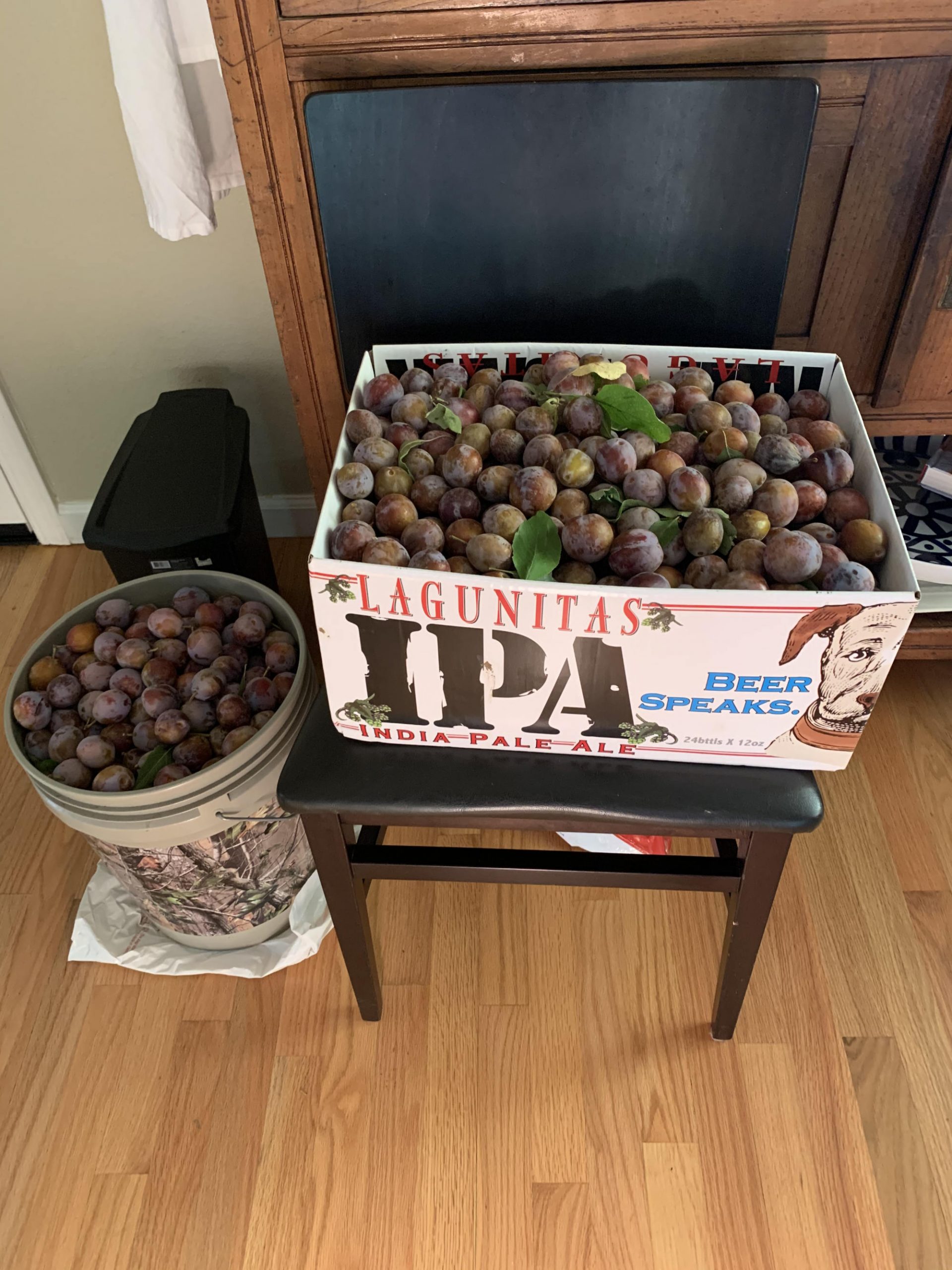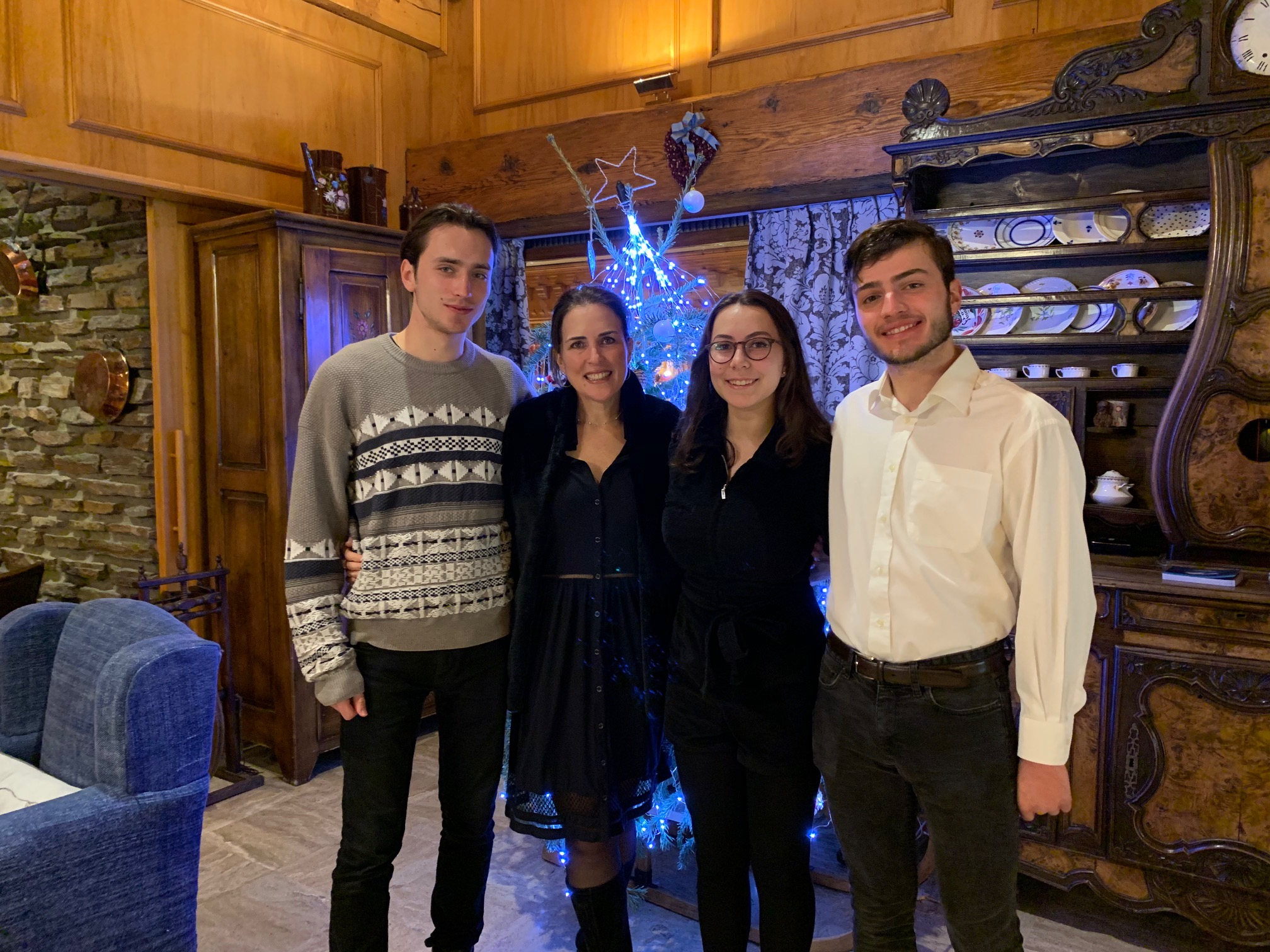Dear Pop,
When I think back on my childhood, there is one particular thing that stands out for me-growing up with a French dad. From a young age, I recall wondering why we called you Papa and not Daddy? I have memories of sometimes being embarrassed when one of my friends couldn’t understand something you were saying. But I also remember a sense of pride knowing that our family story was kind of different from other families. I remember that excitement and build-up before taking one of our long trips to France to see family members we hardly knew but who were so excited to see us. I have memories of Mamie’s visits and her offering me my first glimpse of life in another part of the world-strange dry toast for breakfast, card games where I always won, hard candies that only appeared when she was around, colorful money, and a language I didn’t understand. That sense of wonder and pride most certainly influenced my decision to journey to France by myself to get to know your native country a little better. I’ll never forget that fateful day when I learned about SRJC’s ‘springtime in Paris’ offering. It seemed so obvious to me that I needed to go, much to mom’s dismay! And I can’t help but wonder, even if you didn’t initiate your own immigration to the United States 25 years earlier, if I didn’t take after your sense of tenacity and drive to make it work out. I know I certainly can relate to what it must have felt like to be so far away from your family but also to the feeling of discovering something new and taking a path that was a little unexpected.
After marrying Martin and starting my family in Germany, I quickly came to realize that I wanted my children to know their grandparents, their aunts and uncles and cousins as well as the easy and welcoming feelings that came from the summers spent in Santa Rosa. All those countless barbeques and days around the pool certainly engrained such a strong sense of family for myself and my kids. Moving back to France in 2007 was fraught with mixed feelings for me-not an ideal job prospect for Martin and a whole new school system for Anton and Max that led to many tears and some trauma. I often questioned what we were doing here. Luckily, vacation time in France is plentiful and sacred and would allow us to escape our stressful Parisian life for a few weeks at a time. Whenever we would visit La Greyze, one of the first things I did was call your sister Rosy to see when I could pay her a visit. Having her close by was comforting to me and I was always amazed to see how similar her eyes were to yours and by default, to mine. I needed that connection to home when I often felt so far away.
After all these years, I look back and am grateful to have grown up with a father who was a ‘little different.’ I am grateful to have inherited several cultures and follow a path that opened me up to several more. I am proud to be able to pass on these cultures to my own children who know their roots well and can take the best of all worlds.
Love, Caroline
Dear Pop,
Recently you made the comment that you were surprised that I had created a very traditional life and settled in Santa Rosa. You had expected me to be “guiding climbing trips on Mt. Everest.” Aside from the fact that I don’t mountain climb, I have to agree. I’m not sure if it’s my 50 th birthday creeping up on me but I find myself asking all those existential questions: How did I get here? Where am I going? Is this enough for me?
When I reflect on how I got here I think about our family’s experiences and how I fit in. From very early on I had the sense that I was different than my sisters. I suppose I became the typical middle child searching for my identity by the time I was a toddler. Who can blame me really? Always being compare to my sisters, rarely getting individual attention and even being dressed in matching clothes. Mom would try to convince me that the dress she made for me was different because it was shorter or had a pocket on the other side. But I didn’t buy it. Everyone thought we were so cute in our matching dresses and the message I got was “go along with the program.”
I remember a time when I was about 5 or 6 years old when mom took me out for a “date” with just her and not my sisters. We went to a movie and out for ice cream and I got to bring a friend! That was a real treat. I chose a friend from school that was not also a friend of my sisters. Obviously, this experience had a big impact as I still remember how it felt to have a friend and my mom all to myself.
By the time I was an early teenager I was in full middle child mode. I had finally succeeded in being removed from catholic school and allowed to attend public junior high school. I was thrilled about the freedom of expression without the constraints of school uniforms. But the best part was that I could start over with a whole new crop of friends all my own that I didn’t have to share. It was at this time that I also had the opportunity to explore my own interests and discover what I was good at. I soon realized that I was good at sports and they afforded me a lot of positive attention and something in common with you, Pop. It’s no surprise that the time I spent traveling with my soccer team was some of the most fun I had growing up. But when I was 17 and traveling through Scandinavia playing soccer, mom met me in Oslo and I remember being so excited to see her. Up to that point, I hadn’t even realized how home sick I was.
During the teenage years, playing sports definitely kept me out of trouble (for the most part) and opened up doors for me. Not surprisingly, I couldn’t wait to go away to college and was willing to go to any good school that would take me on their soccer team. After less than one year at UC Irvine, I transferred to UC Davis. Coincidentally, this the same school where my parents met and then both my sisters eventually attended as
well! The first month at Davis I took a job working in a small family owned restaurant. It turns out mom worked at this same restaurant when she was a student there! I remember thinking: What is happening? How is my life taking the same course as my mother? It turns out that was only the beginning.
After college I moved back home in Santa Rosa. In my mind this was just a temporary stop over, a launching pad for the adventurous life ahead. Then I met Rob. He was not like any other guy I had dated. He was kind, patient and chill. Very different from me. I remember thinking at the time that he made my life easy, supporting me emotionally and practically while I pursued my nursing degree. Marriage had never been a priority
for me to that point. Too traditional. Something my sisters would do. However, after several years of dating, I had the sense that I really wanted to legitimize our relationship. Marriage would make others take us seriously, I thought. What I later realized is that those traditional family values were more important to me than I would admit to.
I became especially grateful for our family and its solid values when we all came together to take care of mom when she was sick. We all had our roles and were united in our objective. The months I spent with mom in Seattle while she underwent cancer treatment might be the most influential experience of my adult life. It is during this time that Rob and I decided to expand our family. Jack was born just 9 months after mom passed away. That time period was such a blur but I remember finding out I was pregnant and thinking “and so life goes on”.
Needless to say, Jack has become the center of our little (very traditional) family. Here we are, living just blocks from my childhood home, spending weekends traveling to sporting events and Jack attending the same Catholic high school as his aunts and uncle. He gets limitless attention from his parents and lives the only-child life I always craved. No wild adventures that I still daydream about. For now, it’s exactly the life we need and love. What I realize is that the more I look outward for fulfillment the less satisfied I am. Some day I would like to travel more of the world but I will always stay grounded by the dependable anchor that is my family.
With love and gratitude,
Valerie
Dear Pop,
When asked to write a tribute letter for your family history book, I was a little dumbfounded; I could not get my thoughts together. Do I write about a childhood memory, a trip we took as a family, a trip we took just you and me? I wasn’t sure. After more than a week of contemplating, I decided that I will attempt to write about our father/daughter relationship from my perspective, mixing in some fun family memories.
We all know family is important to you. You go to great lengths to provide a fun, safe environment for your children and grandchildren. You have constructed your house and back yard to ensure that your family will come and enjoy barbeques and holidays. The number of meals and get-togethers we have had at your home is too many to count. Pop, you have many great qualities as a father; in addition to your generosity, your protective nature always shows.
When I was a little girl, I would run errands with you on the weekends. As we walked from the truck into Friedman’s Home Improvement (or wherever we were going), my little hand would be wrapped around your middle finger as we walked through the parking lot. I always felt safe with you.
Another memory I have is the day trips to Geyser Peak Winery during the summer. These were such fun and crazy times. I remember the hayrides down to the Russian River. At times, 15-20 kids sat anxiously on hay bails, hanging on for dear life, pulled by a tractor driven by a semi sober adult. After a long day of playing, eating, and drinking, you would pile four dirty kids back into your Ford Truck; we often rode “legally” in the truck’s bed during the 40-minute drive home to Santa Rosa along Hwy 101. How we survived, I am not sure? Despite this somewhat reckless time, I always felt safe.
Fast forward some 40 years later, my feeling is the same. The highs and the lows of my life, you have been there. I mostly felt your protection while I was going through my divorce. I realized very quickly that you would be by my side through thick and thin. Quietly, and sometimes fiercely, you always looked out for me, and you made me feel safe and secure during a very uncertain time.
Your sage advice and calm support gave me the courage and strength to move from hard times to believe that my future could be full and meaningful. “We” have come a long way. Thank you for your wisdom in providing road maps, even when the journey was windy and unguided.
Being the mother to Zachary and Logan, I can only hope to offer the same support to them. I hope they can turn to me during the good times and I hope to guide them through the hard times. I hope they always feel welcome into my home for family gatherings and holidays.
Thank you for being my protector, I felt it as a little girl, and I feel it as an adult.
With Love,
Mel
Dear Pop,
Congratulations on writing your memoirs and documenting our extensive family history. We’ve all had many ups and downs over the years, as all families do, but I’m proud to be part of such a caring, supportive, diverse, multi-lingual, international, humorous, affable and talented family. Through it all, our family maintains it’s ‘joie de vivre’ and is always (usually) happy to spend quality time together.
I remember a few trips we took when I was kid that really stick out as highlights from childhood. Looking back on that long road trip to Oregon, I realize now you were probably trying to give me special attention, as our home life was highly ‘sisters-centric.’ At least that’s the way I viewed it, but I’m sure they’ll disagree. We spent most of the time in the truck, but I was so excited when we arrived at each new campsite. You taught me to fish at the vineyard reservoir, which prepared me well for the trip. Previously, we did catch and release, but in Oregon we caught all those trout and fried them up for dinner. I was too squeamish to clean them myself, but certainly enjoyed the meals. We also road four-wheelers in the dunes. We had so much fun that we went back another day to do it all again. I noticed you bought several four wheelers for the vineyards after that. Later on as a teenager, I flipped one over while laying out trellis wire at Viansa, and narrowly escaped great bodily injury. You found it very humorous when I called you for help to get the four wheeler out of the ditch. I was not amused at all, but that’s a whole other story. There were other camping trips too; the one with Nick Abbott and the bears comes to mind. The park ranger at Yosemite came around to remind campers to be sure to lock their coolers in the bear boxes at night. For some inexplicable reason, we did not follow that advice. Nick and I were awoken suddenly to someone yelling and banging pots and pans loudly near our tent. We went outside to see that someone was you. A crowd gathered to see us try to scare the two huge black
bears out of the tree. Eventually the ranger came and somehow got the bears down and chased them off. In the morning, I remember being super bummed out that the bears had eaten most of our Hershey bars meant for making s’mores.
Now that I have two boys of my own, I look forward to making great memories with them too. My childhood memories have such a lasting and deep impact on me, and I will always try to remember that for Julien and Elliot. Pop, you taught me that family is the most important thing in life. Without each other, what do we have? I truly admire the way you find ways to get us all together, even during a pandemic. You’ve got a lot of great memories yet to be made, and it’s comforting to know we’ll all be making them with you.
With love,
Nick






